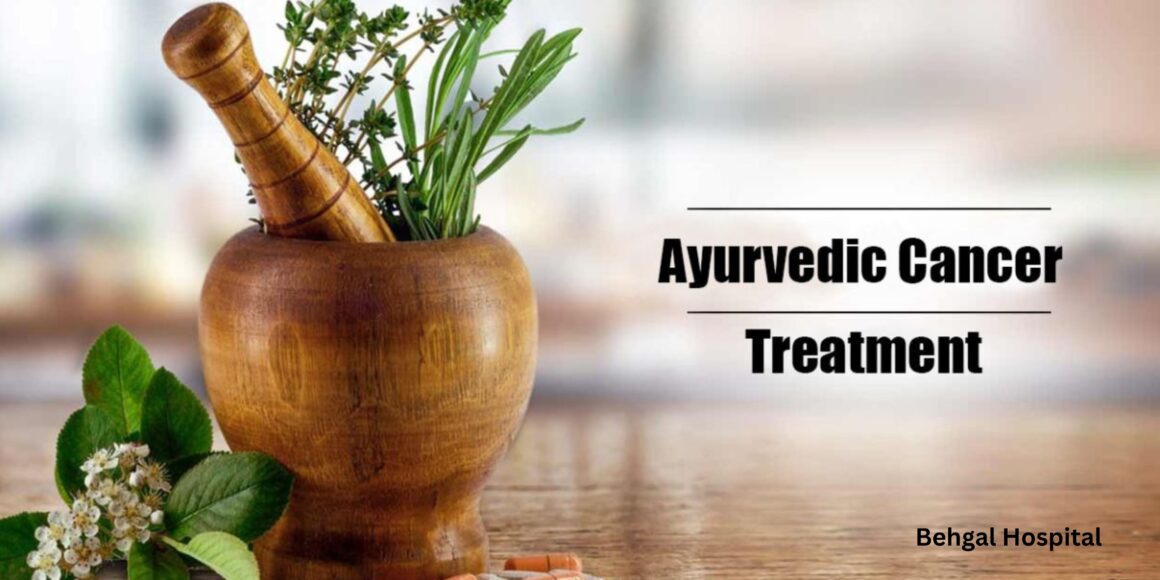The journey of cancer therapy is not without its physical and psychological difficulties. Among the biggest challenges that patients face is stress management. India’s traditional medical system, Ayurveda, offers integrative methods for stress reduction and cancer recuperation. The holistic approach to healing and well-being provided by Ayurveda takes into account the body, mind, and spirit. This blog explores how Ayurvedic cancer treatment can enhance healing and manage stress effectively.
Understanding Stress in Cancer Treatment
Cancer and its treatments can lead to a range of stressors: the fear of the unknown, physical discomfort, changes in body image, and the emotional toll of the diagnosis and ongoing treatment. Chronic stress can impact immune function, energy levels, and overall quality of life, making it essential to find effective ways to manage it.
According to Ayurveda, stress upsets the dosha balance, which is the body’s energetic equilibrium. The three doshas of Pitta, Kapha, and Vata reflect various facets of mental and physical health. Stress and other health problems may occur when they are out of balance. Ayurveda provides strategies for stress management by recognizing and correcting these imbalances.
Key Ayurvedic Techniques for Stress Management
1. Mindful Meditation and Pranayama
Meditation and pranayama (breathing exercises) are foundational practices in Ayurveda for calming the mind and reducing stress.
Meditation: Regular meditation helps to quiet the mind, reduce anxiety, and improve emotional resilience. In Ayurveda, meditation practices are tailored to individual dosha imbalances. For instance, Vata imbalances may benefit from grounding and calming meditation practices, while Pitta types might need soothing and cooling techniques.
Pranayama: Breathing exercises like Nadi Shodhana (alternate nostril breathing) and Bhramari (humming bee breath) can help balance the doshas and calm the nervous system. These practices are particularly beneficial for reducing anxiety and promoting relaxation.
Practice Tip: Set aside 10-15 minutes daily for meditation or pranayama. Find a quiet space, sit comfortably, and focus on your breath or a calming mantra.
2. Ayurvedic Herbal Remedies
Ayurveda utilizes a range of herbs known for their stress-relieving properties. Some commonly recommended herbs include:
Ashwagandha (Withania somnifera): Often called “Indian ginseng,” ashwagandha is renowned for its adaptogenic properties, helping the body cope with stress and improve overall resilience.
Brahmi (Bacopa monnieri): Known for its calming effects on the nervous system, Brahmi supports mental clarity and reduces anxiety.
Tulsi (Ocimum sanctum): Also known as holy basil, Tulsi is valued for its stress-relieving and immune-boosting properties.
Practice Tip: Consult with an Ayurvedic practitioner to determine the appropriate herbs and dosage for your specific needs. Herbal teas and supplements can be incorporated into your daily routine under professional guidance.
3. Ayurvedic Diet and Nutrition
Diet plays a crucial role in Ayurveda, particularly in managing stress and supporting cancer recovery. An Ayurvedic diet focuses on balancing the doshas through food choices.
Soothing Foods: Incorporate nourishing and easy-to-digest, such as cooked vegetables, rice, and warm soups. These help to calm the Vata dosha and promote a sense of stability.
Pitta-Reducing Foods: If stress exacerbates Pitta imbalances (manifesting as irritability or inflammation), opt for cooling foods like cucumbers, melons, and leafy greens. Avoid spicy and acidic foods that can aggravate Pitta.
Kapha-Balancing Foods: For those experiencing lethargy or depression (Kapha imbalances), include stimulating foods such as ginger, turmeric, and light grains to invigorate and uplift the mood.
Practice Tip: Eat meals at regular times, focusing on fresh, whole foods. Avoid heavy or processed foods that can contribute to stress and imbalance.
4. Daily Routine (Dinacharya)
Ayurveda emphasizes the importance of a consistent daily routine, known as Dinacharya, to maintain balance and manage stress.
Morning Routine: Begin your day with practices such as oil pulling, tongue scraping, and a warm glass of water. These routines help to cleanse the body and prepare the mind for the day ahead.
Daily Activities: Incorporate regular exercise, such as gentle yoga or walking, to keep the body active and reduce stress. Establishing a regular sleep schedule and creating a relaxing bedtime routine can also improve sleep quality and reduce stress.
Practice Tip: Develop a daily routine that aligns with your individual needs and preferences. Consistency is key to achieving balance and reducing stress.
5. Self-Massage (Abhyanga)
Self-massage, or Abhyanga, is an integral part of Ayurvedic self-care. This practice involves applying warm, medicated oils to the body to soothe the skin, improve circulation, and promote relaxation.
Benefits: Abhyanga helps to balance the doshas, relieve muscle tension, and enhance overall well-being. It also supports lymphatic drainage and detoxification, which can be particularly beneficial during cancer recovery.
Practice Tip: Use oils such as sesame or coconut, and perform self-massage daily or a few times a week. Gently warm the oil, apply it in circular motions, and take time to enjoy the calming effects.
6. Emotional and Spiritual Support
Ayurveda recognizes the importance of emotional and spiritual well-being in managing stress. Practices such as Mantra Chanting, Yoga, and Spiritual Reflection can be powerful tools for maintaining emotional balance.
Mantra Chanting: Repeating soothing mantras or affirmations can help calm the mind and reinforce positive thinking.
Yoga: Gentle yoga poses and stretches can relieve physical tension and promote mental relaxation.
Spiritual Reflection: Engage in practices that resonate with your personal beliefs, whether it’s prayer, contemplation, or connecting with nature.
Practice Tip: Choose practices that resonate with you and incorporate them into your daily life. These activities can help nurture your emotional and spiritual well-being.
Conclusion
Ayurvedic cancer treatment offers a holistic approach to managing stress and supporting recovery. By incorporating mindfulness, herbal remedies, a balanced diet, daily routines, self-massage, and emotional support, you can enhance your ability to cope with the challenges of cancer treatment. Always consult with a qualified Ayurvedic practitioner to tailor these techniques to your specific needs and ensure they complement your overall treatment plan. Embracing Ayurvedic practices can provide valuable support and contribute to a more balanced and harmonious journey through cancer recovery.





Leave a Reply